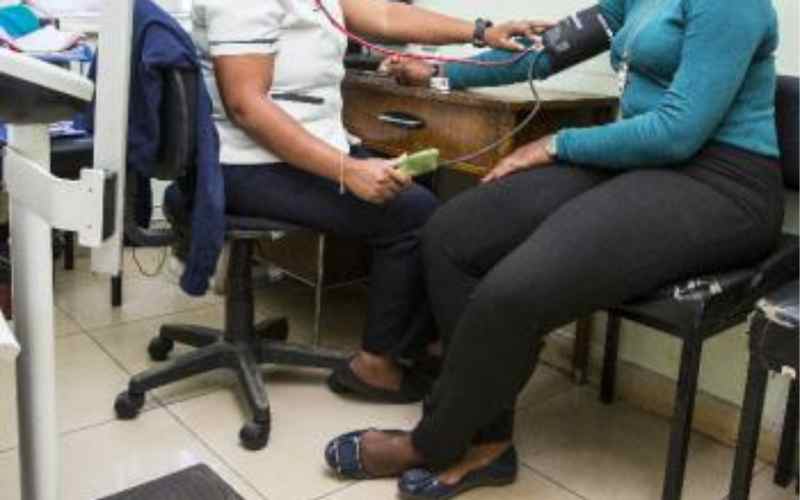
You must have noticed that every corner block in most estates and even Nairobi’s Central Business District either has a chemist or a clinic.
The Tom Mboya stretch from Ambassadeur Hotel in the CBD to Haile Selassie has 18 such outlets comprising opticians, diagnostics and pharmacies.
The same is the case in city estates. The 10-metre walk between Biafra estate and Jehovah Witness Church in Eastleigh Section III, for instance, has 15 medical related outlets, including five hospitals – two of which opened shop in 2020.
Urbanites and their search for convenience coupled with the coronavirus pandemic have seen a rise in another trend in Nairobi: walk-in hospitals. Most are around corners next to major bus stops, others along popular side-walks with prominent signs reading ‘walk-in hospital’ to differentiate themselves from clinics.
The clientele is mostly urbane, middle-class comprising father, mother, two 'totos' and the Chihuahua.
Dr Abdi Mohamed, chair, Kenya Association of Private Hospitals says these facilities “exist because there is a need that is being met,” from the principle of supply and demand considering “there is an underinvestment in the public health sector and wherever there is this gap, the private sector will always step in.”
To rectify the situation, the Nairobi Metropolitan Services plans to build 24 health facilities and four are already operational in Kayole and Korogocho.
But Wahome Karanja who owns a clinic in the CBD clarifies that ‘walk-in hospitals’ have a different target as “such facilities cater for patients like young parents who just want to walk in for antenatal care.”
Dr Karanja says the lure of walk-in hospitals is hinged on being served in minutes, which is “unlike going to a government facility where the turnaround time is too long” and in any case, most patients suffer upper respiratory infections, minor traumas and those in need of antenatal care which is ideal in walk-in facilities.
Another lure is their proximity that vital for saving lives. They save precious time that would otherwise have been lost rushing to far-flung, but larger facilities. Karanja says his facilities handle motorbike accident injuries and one baby was delivered there last year.
The Covid-19 pandemic has also been a boon to walk-in hospitals from Kenyans who fear contracting the virus from using public transport to reach large health facilities where they might expose themselves further.
Karanja says this trend and model of business has seen major hospitals “also invest in clinics to provide services like antenatal for clients like young parents,” he says, citing Nairobi Hospital and The Aga Khan Hospital, both of which have outpost clinics at Capital Centre along Mombasa Road, Nairobi.
Even government facilities have spotted a blatant demand and the Kenyatta National Hospital (KNH) opened the Kenyatta National Hospital Othaya Annex in Nyeri County as a subsidiary where patients can benefit from government facilities and expertise without trooping to Nairobi.
A January 2020 report by the Institute of Economic Affairs put Kenya at number three among five East African countries in terms of out of pocket expenditure, meaning there was a rise in using private as opposed to public facilities.
The mushrooming of many medical outlets especially clinics and chemists saw Nandi Hills MP Alfred Keter table a Bill proposing the prohibition of dispensing medicine without a written prescription from a registered health practitioner.
The Bill, which is yet to be debated in the National Assembly, is aimed at encouraging Kenyans to seek medical attention from qualified health practitioners notwithstanding the ailment.
 The Standard Group Plc is a multi-media organization with investments in media
platforms spanning newspaper print
operations, television, radio broadcasting, digital and online services. The
Standard Group is recognized as a
leading multi-media house in Kenya with a key influence in matters of national
and international interest.
The Standard Group Plc is a multi-media organization with investments in media
platforms spanning newspaper print
operations, television, radio broadcasting, digital and online services. The
Standard Group is recognized as a
leading multi-media house in Kenya with a key influence in matters of national
and international interest.











